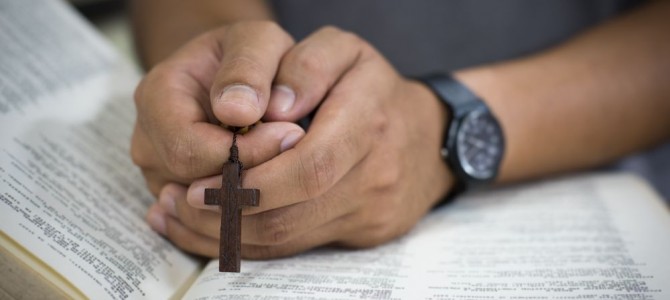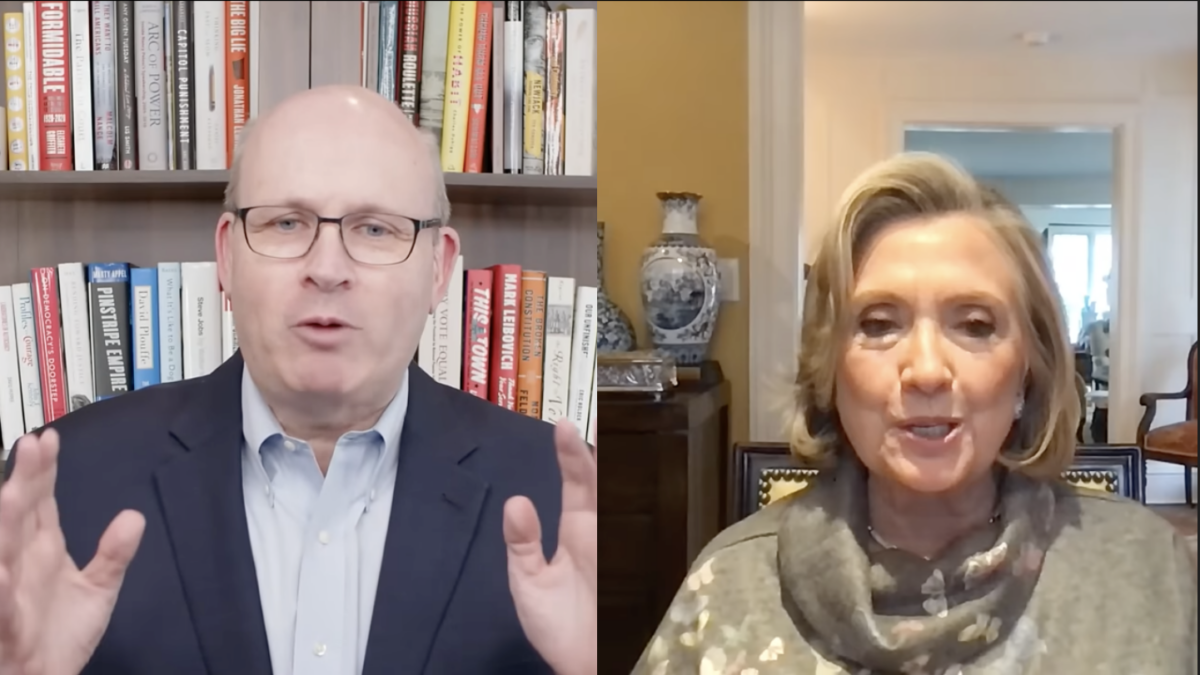
America needs a “prayer amnesty.” Let us declare that henceforth, it is always socially acceptable to pray for our compatriots when they are suffering or in need.
It’s discouraging that things have come to this. To be sure, prayer has always held some potential for social complication or abuse. If you tell a friend that you voted for Donald Trump, and he solemnly promises to pray for you, that won’t be read as a kindness.
Things ought to be different, though, when a national tragedy provokes a collective outpouring of grief. At such a time, offering prayers is entirely appropriate, and absent very powerful evidence to the contrary, we should presume that those offers are sincere.
Please, someone explain this to my co-religionist, Kristen Powers.
Prayer Shaming Is On The Rise—Again
Writing from the Washington Post, Powers denounces the “twisted American ritual” in which a mass shooting’s aftermath provokes “shoulder shrugs, mumblings about “the price of freedom,” and “assurances that the people elected to protect them are sending their ‘thoughts and prayers.’”
The whole passage is fairly distasteful. But we should especially note the weird little elision from “American ritual” to the promise that the people elected to protect us are praying. Read the sentence again and ask: who specifically does Powers have in the dock? If her prayer ban only applies to elected representatives, why does she link to statements by Bill O’Reilly? If she wants all Second Amendment supporters to keep their prayer lives to themselves, then why fixate on politicians? I’m certainly not familiar with the “ritual” wherein we all respond to a terrible tragedy by announcing, “I’m so sorry, and I’m writing my congressman right now to ask him to pray.”
But it’s pretty easy to understand why Powers would phrase her point in such an awkward way. It’s because she wants to politicize prayer. In referencing the “ritual” of prayer, she indicts large swaths of the American public; but in shifting to elected representatives, she directs attention to the people who seem most empowered to do something in the wake of tragedy. The rest of the praying public gets sidelined as a kind of profane cheer squad for greedy public officials gorging themselves on NRA blood money.
That’s exactly the problem with this piece. I like Powers, and often admire her willingness to try to carve out some middle ground in our polarized political climate. Prayer-shaming is unseemly, though. When something terrible happens, it’s appropriate to offer prayers before proceeding on to further questions about what needs to be done. That principle holds for elected representatives and the general public. And while I’m on the subject, let me just add: I don’t know anyone who shrugs their shoulders after hearing about the wanton murder of dozens of compatriots.
Putting the Shoe on the Other Foot
Just to prove I’m not a hypocrite, I brainstormed some cases in which liberals might want to pray for suffering people they declined to help. I can say in every case that I personally would fully support such a “prayer effort.”
If the left would like to pray for the victims of abortion, or for men and women grieving the deaths of their unborn children, I think that would be a very good thing.
If they wish to pray for children who watched their families dissolve in the aftermath of the Sexual Revolution, I would applaud that effort.
I welcome prayers on behalf of those Americans who struggle to find jobs, perhaps in part as a consequence of high levels of immigration.
It would please me very much if liberals took it upon themselves to pray for religious traditionalists (bakers or wedding photographers) whose businesses they seek to shut down through lawsuits. I think that would be a very admirable practice to take up.
I could go on. But I’m already in danger of persuading people that I’m just being cute or flippant, taking advantage of a national tragedy to taunt people who don’t share my views on a range of subjects. That is not the point at all, and in fact, as someone who engages in public advocacy, I do try to remember to pray for those who might be adversely affected by the policies or positions I support. If I’m arguing in favor of free trade, I might say a prayer for those who may lose their jobs to outsourcing. I pray for pregnant women in difficult circumstances, and for gay and lesbian teenagers who feel alienated in religious communities. If I support health care reform that might cause some to lose their insurance, I’ll pray for those who lose their insurance.
The Burdens of Sympathy
I realize that some people would surely see this as a perverse way of alleviating guilt (no surprise from a Catholic!), or as a pharisaical exercise in articulated self-righteousness. Others would likely view it as an outpouring of bleeding-heart sentimentalism. I maintain that praying for those one cannot help is very much a fitting way for any person (but especially a public representative or advocate) to stay mindful of the interests of all fellow human beings. Realistically, we cannot help everyone. To meditate on politics is to dwell in the realm of the imperfect. There will always be those whose pain we must regretfully decline to alleviate at a particular moment in time—not because we don’t care, but because we believe that the available means (if any) would be unjust, or else gravely injurious to the common good.
In my 12 years as a Catholic, I have never found that prayer diminishes my concern for the wellbeing of its object. In general, it’s fairly uncomfortable to pray for our enemies, and perhaps even more so to pray for those we regretfully decide we cannot help (for carefully considered reasons). It’s far more pleasant to persuade ourselves that the requested help is unneeded or undeserved. That’s precisely why we should resist the impulse, and make a point of saying uncomfortable prayers.
I understand that it can be maddening when pious displays are made by people one finds unsympathetic. When people start holding prayer vigils for the NRA itself, I’ll forgive Powers for getting a little acerbic. In this case, she should curb the impulse. Prayer cannot be an inappropriate response to senseless murder. A rather famous man once said something about “mourning with those who mourn.” He didn’t attach a political litmus test to that instruction, and neither should we.









